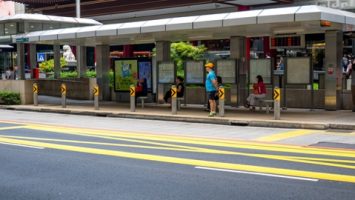
The Austrian Institute of Technology (AIT) provides scientific support to Vienna’s Urban Lakeside smart city demo project to examine innovative approaches in the energy supply sector. This ambitious project requires a total redesign of the urban energy system, taking into account the need to balance supply and demand, to incentivize consumers to monitor their energy usage, to develop smart buildings, and to create lean and versatile networks.
“Aspern offers us the ideal conditions for research, demonstration, testing and optimization of new technologies and methods in the smart city sector,” said Friederich Kupzog, Senior Scientist at the AIT Energy Department. “We will make use of the findings from this project to optimize the operating and control strategies for buildings and power grids and to devise new user interaction approaches to enhance energy efficiency”.
Aspern Smart City Research GmbH & Co KG (ASCR) leads the project. A joint venture between a network operator, an energy generation and supply company, a technology company and the City of Vienna, ASCR is examining innovative approaches towards building automation systems and using the energy flexibility of buildings and the energy market in ways that enable residents to cooperate and accept the new systems. Methods are also being developed to capture detailed network status data and also use it for network planning.
ASCR’s smart building research focuses on three buildings – a residential building, a student home, and a school campus. The buildings are equipped with photovoltaic panels, solar thermal panels, hybrid panels, heat pumps and various thermal as well as electrical storage facilities. This enables them to not only use energy but also to produce and store it.
The smart grid test bed is composed of 12 secondary substations, 24 transformers and many sensors. Data collection is carried out by smart meters and field sensors – including power quality measuring devices (P855) or grid monitoring devices (GMDs). As smart meters only provide rough data, additional measurements and sensors are required. As sensors generate higher costs, a challenge facing the ASCR research program is determining the minimum required coverage with sensors that will provide a detailed enough picture of the network status.
Using real data from the test field, the ASCR research team creates a digital clone of reality in order to simulate any energy needs as well as optimization measures. An integrated view is obtained by incorporating data obtained from the buildings and the network, such as temperature, room air quality, electricity consumption, voltage, and external data, such as weather.
The Aspern Smart City Demo Project has been allocated 3.7 million Euros of funding from the Austrian Climate and Energy Fund.


